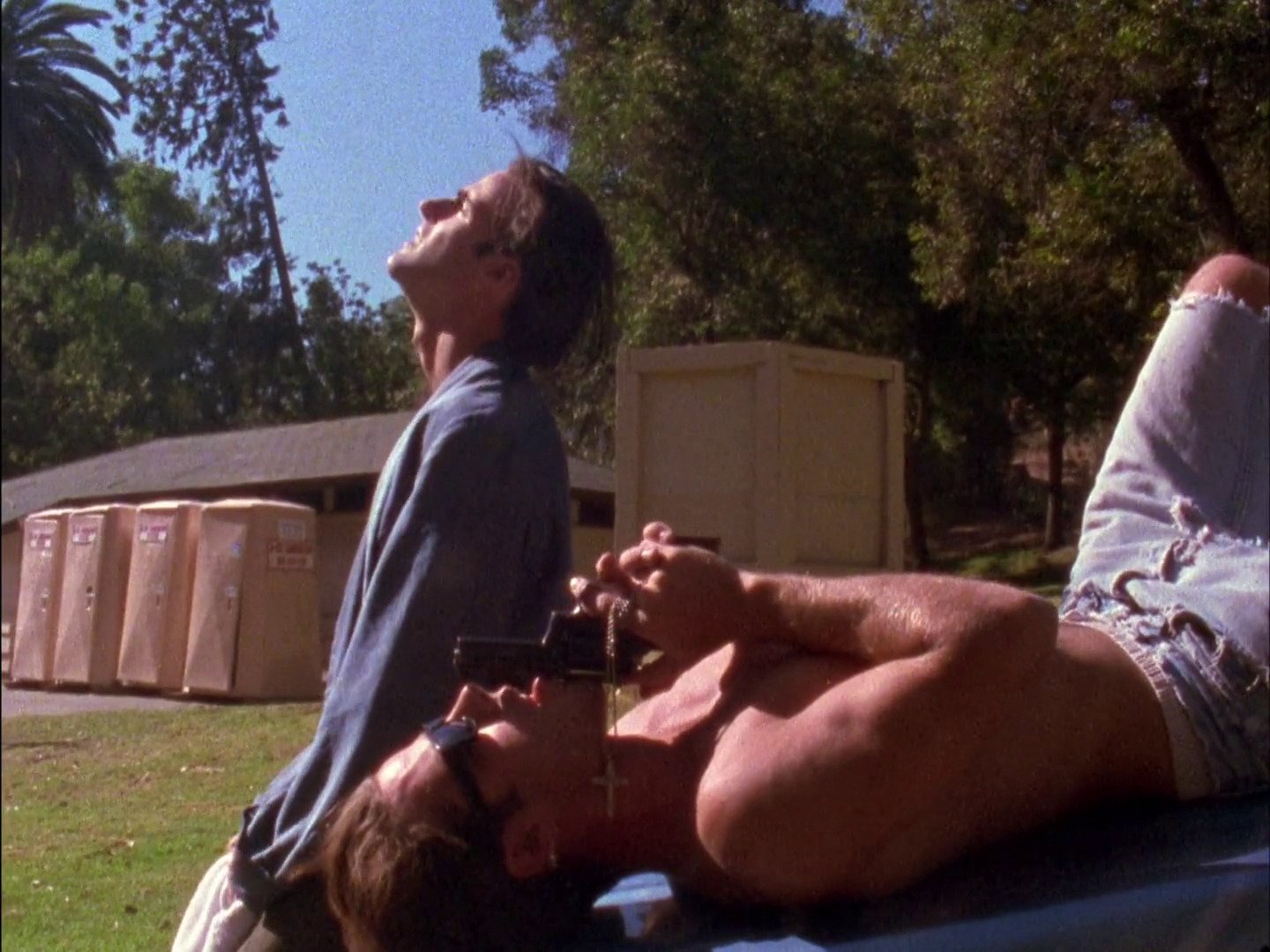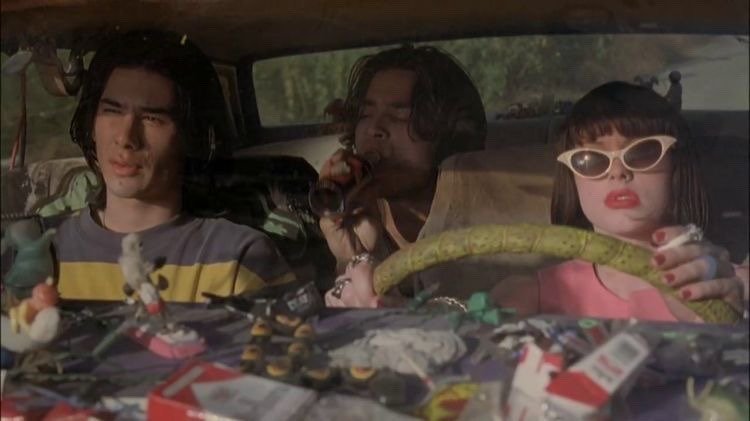SEX, DRUGS AND ANARCHY: Introducing The Bold Cinema of Gregg Araki
The 90s and early 2000s were the peak period for youth culture cinema-- and we're not just saying that due to the ongoing resurgence of the Y2k aesthetic. Over the years there has been a multitude of filmmakers who have iconically captured the coming-of-age experience, but this was the era that gave birth to films like Larry Clark's Kids, Gummo, Catherin Hardwicke's "Thirteen." and the best of Gregg Araki's oeuvre. These films polarized audiences with their unparalleled portrayal of the unspoken experiences of adolescents, their iconoclasm later contributing to other great programs we enjoy today, such as "Skins UK," Mid-'90s" and "Euphoria."
Cut screen scene from Totally F***ed Up, 1994
Fans of subversive cinema that challenges perceptions and induces an expansion of the mind need to know about director Gregg Araki — because his work does just that. Araki's films speak to the outcast's spirit, setting the outsiders of the period as central and normalizing the themes a non-liberal mind would classify as deviant. With a body of work that spans over thirty years, he has established himself as one of the most important voices in independent cinema and his films continue to inspire and provoke audiences around the world.
Scene from “Three Bewildered People in the Night” 1987
Born in 1959 in Los Angeles, California, Araki states that he's always had an artistic spirit, having created his own comic book series by the age of nine. It wasn't until his time studying film history at UC Santa Barbara, however, that Araki felt he began to take a serious interest in film. Armed with this new attraction and a serious enamour with Godard, Araki began his career making short films. In 1987 he debuted his feature film, "Three Bewildered People in the Night," which premiered at the Sundance Film Festival. Yet it wasn't until the release of his breakthrough film "The Living End," a film that was hailed as a landmark of queer cinema, that the seeds of just how prolific Araki's career would become began to blossom. This would mark the beginning of Araki's movement toward becoming one of the most critical voices in indie cinema. Often referred to as the gay "Romeo and Juliet," "The Living End" portrays a raw tale of two HIV-positive men who embark on a world-spiting road trip and won critical acclaim at film festivals around the world.
Scenes from “The Living End” 1992
In 1994 Araki began garnering mainstream attention with the first film in a series that would later be dubbed the "Teenage Apocolypse Trilogy," "Totally F***ed Up. The film is categorized by Araki himself as "A rag-tag story of the fag-and-dyke teen underground…A kind of cross between avant-garde experimental cinema and a queer John Hughes flick.” "Totally F***ed" up made waves for its more honest and realistic portrayal of LGBT characters than ever done before in mainstream Hollywood; highlighting themes of alienation, the high suicide rate amongst gay teens and aids panic.
Scenes from “Totally “F***ed Up” 1994
In 1995, Araki continued the trilogy with "The Doom Generation," a hyper-violent and sexually explicit movie that divided critics but became a cult classic. Then finally, completed the trilogy with "Nowhere" a film which speaks on the ugly face of toxic masculinity and which Araki describes as a "Beverly Hills 90210 episode on Acid." These films were controversial at the time, but they paved the way for more diverse representation in cinema.
Scenes from “The Doom Generation” 1995
Araki's later work has seen him branch out into new territory, experimenting with different genres and styles while still maintaining his distinctive voice. His 2004 film "Mysterious Skin," is a haunting meditation on the long-term effects of childhood trauma, and marked a departure from his earlier work in its more restrained approach and complex characterizations.
Scenes from “Mysterious Skin” 2004
Despite the often provocative subject matter of his films, Araki's work is marked by a deep empathy and humanism that shines through even in his darkest and most challenging moments. The non-linear and fragmented stories of Araki's films in tandem with the surreal dreamlike imagery creates a sense of otherworldliness that reflects the complex and chaotic nature of the human experience. His films are unapologetically confrontational and unafraid to tackle taboo subjects, offering a window into the lives of characters who are often marginalized or forgotten by mainstream society.
Scene from “Nowhere” 1997
Gregg Araki's influence on the indie film scene cannot be overstated. His work has inspired a generation of filmmakers to push the boundaries of what is possible in cinema; to explore difficult subjects with honesty and authenticity, and to celebrate the complexity and diversity of the human experience. With his uncompromising vision and singular voice, Gregg Araki is a true icon of contemporary cinema, and his legacy will continue to inspire and challenge filmmakers for generations to come.
















